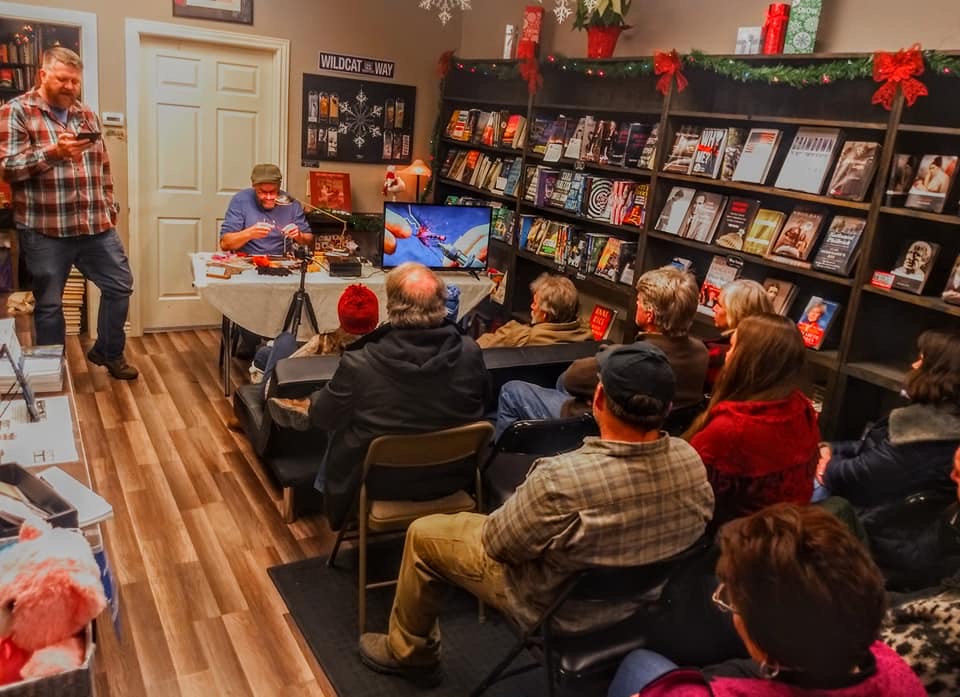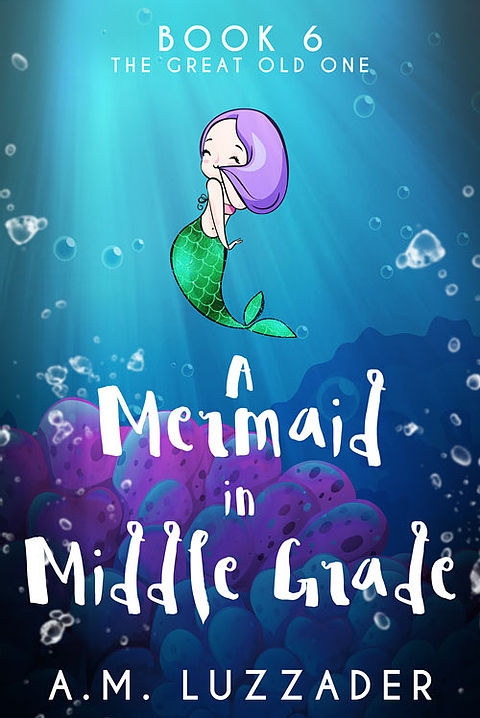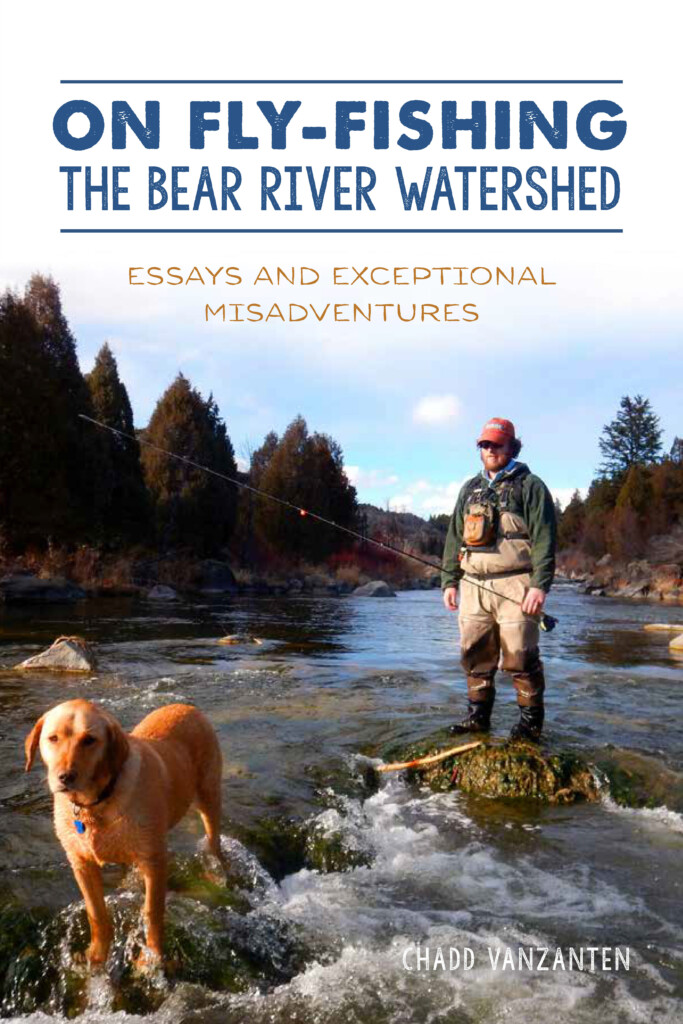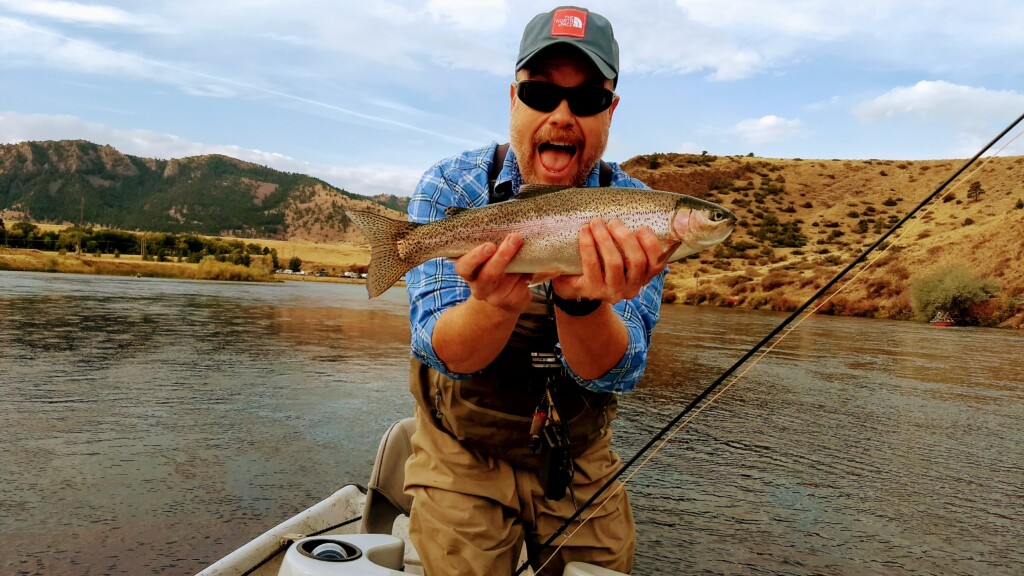A.M. Luzzader has cultivated a thriving enterprise as an independent author She has published novels with apocalyptic themes for adults but who decided to switch things up as the pandemic expanded by writing children’s books including fantasy adventures with a young mermaid and a humorous mystery series. Meanwhile, her husband, also an author as well as an editor, Chadd VanZanten, whose most passionate recreation is fly fishing, specializes in what he humorously refers to “fish lit” and works through publishers to see his manuscripts printed and distributed.
While coming from different perspectives as authors, the Logan, Utah couple find in each other their greatest and most important support as literary colleagues. “No one understands a writer perhaps than another writer, especially when it comes to dealing with a bad review or brainstorming ideas for a book or for just be empathetic about the process for each other,” Luzzader says in an interview with The Utah Review. “He has been a huge benefit for helping me with my work. He can give a critical eye without being judgmental. I feel he is a better writer than I am.”
In a separate interview just barely 30 minutes later, VanZanten echoes his wife’s sentiments completely. “Our relationship has a lot to do with writing,” he says, “and no more than a day goes without talking about writing with each other in one capacity or another. It can be about projects waiting in the wings to be published. We both write full time so we’re always discussing the process whether it is about covers or editing or final preparations. She gives me a lot of support.”
Both authors will appear at this year’s Utah Arts Festival on the Literary Arts Stage in separate readings. Luzzader (Aug, 27, 5 p.m., Literary Arts Stage) will read excerpts from her children’s book series along with sections of short stories geared toward adults. VanZanten will be joined by expert fly-tyer Tim King (Aug. 27, 6:30 p.m., Literary Arts Stage) in Hooks & Books, a unique spoken word interpretive presentation of fly-tying, as King interprets the reading by creating patterns suited to each story VanZanten reads. Audiences will be able to see King’s hands and work area projected on a screen.
Luzzader spent five years writing and publishing a three-book novel series about a woman who survives a world plague. Now available as a boxed set, the books were titled Among These Bones, When It’s No Longer Night, and Maybe We’ll Remember. Other books included an anthology of horror stories and she contributed horror stories to the popular anthology Descent into Darkness as well as the story The Day The Cats Went Missing for Apocalypse Utah: A Collection of Utah Horror featuring a dozen regional writers. She completed the Among These Bones series in January 2020, just shortly before the world grounded to a halt with the COVID-19 pandemic. Luzzader says, “I was in a dark place and with having our lives upturned, I didn’t want to write about the end of the world so I decided it was time for an escape to write children’s stories and focus on having fun again.”
Luzzader quickly comprehended that gaining traction in the children’s literature segments of the market is one of the most vigorously competitive of any genre in the publishing world. “I am not writing just for children but one also has to succeed in grabbing the attention of the parent or grandparent who is going to buy the book so this was an extra challenge,” she explains. “And, in writing, I had to be mindful of fitting the story within the constraints of what’s appropriate entertainment but also writing stories that teach lessons and have important moral takeaways for the young readers.” For books targeting adult readers, Luzzader uses her full first name (Amanda) while she goes by the initials (A. M.) for her children’s books, a distinction which parents appreciate when they are searching online for her work.
The children’s series grew quickly. The six books of A Mermaid in Middle Grade series are developed around Brynn Finley, who has just started the sixth grade in mermaid school and is struggling with learning the magic which all mermaids are expected to master. “She makes a lot of mistakes and makes the wrong choice but she learns the lesson and does better,” Luzzader says. “Brynn reminds us that it’s okay that we’re all imperfect people and make mistakes because it gives us the opportunity to try again, learn and eventually succeed.”
While the books are not illustrated, the stories have reached distant points that have surprised Luzzader. She received an “email out of the blue” asking for rights to have the mermaid stories translated into Russian and to add illustrations. Luzzader says she hesitated at first when the request came in asking if the rights were available, as she worried that it could have been a scam. But, she realized that everything was legitimate and proper when the contracts were negotiated and signed.
Luzzader says she decided to go for the route as an independent author and publisher because of the lengthy period it took from querying a prospective agent who then would have to pitch the manuscript to a publisher and then see it through to being acquired for publication and the ensuing production process. “My motivation was to get them out as quickly as possible,” she says. “I was able to have the six mermaid books released in one year as opposed to six years, if I had decided to go with a traditional publisher and see one book released per year.” Along the way, Luzzader has become the astute student of digital media and algorithms, learning to leverage the most ideal marketing and promotional strategies for her work.
VanZanten says, “I know a fraction of what she does. She has discovered the trick of setting ads and bidding on ad space. It amazes me how complicated it is and she definitely has penetrated that mist of confusion and complexity.”
As for his own work, he says, “Fly fishing is one of those pursuits that engenders passion. While he says he enjoys skiing as a passing interest, he adds that “fly fishing is part of my identity and explains who I am. There are the philosophical and spiritual components. It is a Zen activity where one does not just sit down and put a pole with a worm into the water. Fly fishing is focused and it squeezes out all of the concerns of your life.” VanZanten’s work essentially follows the legacy steps set forth by 17th century author Izaak Walton, whose The Compleat Angler and the character of Piscator set precedents in literature anchoring the environmental movement.
VanZanten’s writings in fishing and outdoor sport extend to broader contexts about environmentalism and conservation. For example, in his latest book, On Fly-Fishing the Bear River Watershed: Essays and Exceptional Misadventures (Arcadia Publishing), VanZanten weaves through text about the area’s exceptional fly-fishing destinations with various aspects anchoring a comprehensive perspective about trout fishing and the resilience of ecosystems. This is situated amidst the political controversies surrounding conservation and preservation in the Intermountain West, the concerns arising from climate change, the wisdom of Indigenous peoples and counterculture influences.
“Fly fishing always has been a centering activity for me as a meditation and it keeps me sane,” he explains. “Writing about it is natural. As I learned more about the pointers and techniques of fly fishing, I found that knowledge was reciprocated in teaching me how to write about it, which is why it has made fly fishing so attractive to me.”
VanZanten says Hooks & Books is definitely meant to be tongue-in-cheek and keeping it informal and light-hearted in the hope that any audience members, regardless of whether they are an experienced angler or someone who has never gone fishing can appreciate it. As a blurb for the presentation suggests, VanZanten says. “Some people may enjoy the fly-tying demonstration as much or more than the reading, and I’m perfectly fine with that–sort of.” Meanwhile, King, his co-presenter, adds, “The great thing about making up a whole new form of artistic expression is that no one can say you’re doing it wrong.”
VanZanten says the premise started as a joke for a fly fishing shop in the Cache Valley, which offered weekend fly tying demonstrations to bring customers into the store. “King is my fly tying mentor,” he says “He told me, ‘Get your book that is coming out, read from the book and I will do that fly tying demo.’”
VanZanten adds that while many think about conventional geographic locations and definitions in conservation and environmental politics, the watershed may not be a geographical unit per se but there also is no question that water has become a preeminent topic in the American West with such explosive, controversial and divisive implications. “Fly fishing goes along with the watershed conservation concerns and highlights the mistakes of the past,” he says. While VanZanten says it is easy and justified to be angry about the errors of the past that have led to a tangled mess of problems, it also is important to focus on what can be done now and assess what is positive in the present that can set forth a course for improving the conditions with a broadly informed environmental friendly view. “We cannot restore the full grandeur of the Bear River watershed but there also is plenty that we could do as a starting point to make it better,” he adds.
For more information about all events, see the Utah Arts Festival website. Ticket information can be found here.






